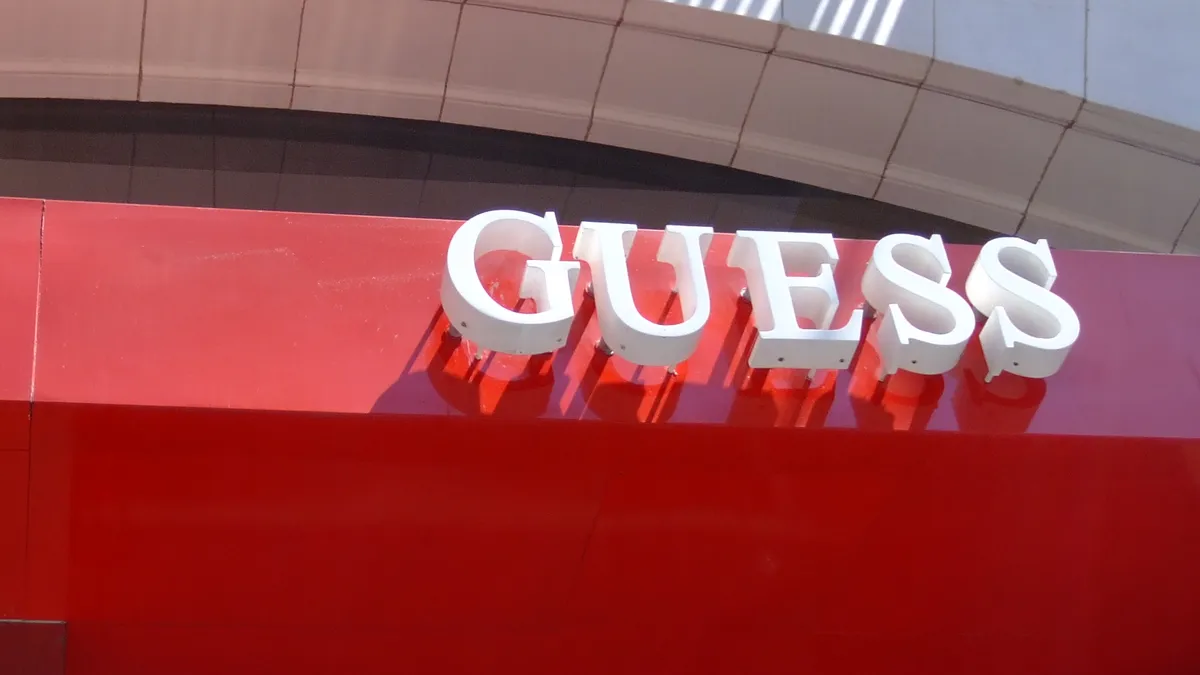Dive Brief:
-
Guess co-founder Paul Marciano has survived a challenge to his participation on the company's board, per a filing with the Securities and Exchange Commission. Anthony Chidoni, Cynthia Livingston and Paul’s brother Maurice Marciano were also re-elected, according to the preliminary results.
-
Activist investor Legion Partners, which has agitated for the Marcianos' removal as new sexual harassment allegations surfaced against Paul Marciano, on Monday noted that he had failed to receive support from 83% of independent shareholders. Guess didn’t immediately respond to requests for comment.
-
Proxy advisory firms ISS and Glass Lewis had also recommended against re-electing Paul Marciano, per SEC filings. In another filing leading up to its shareholders meeting, Guess said it "strongly" believed that ISS "reached the wrong conclusions."
Dive Insight:
Paul Marciano can take his seat at the board table, for now, but that doesn't mean he will have the last word. Legion on Monday said that a strong showing against him "speaks volumes."
"We would like to thank all those who voted on our proxy card and put the Company on notice that it cannot ignore our collective voice," the firm said in a press release. "Paul Marciano may have eked out a win at today's Annual Meeting, but he cannot hide from the persistent reputational and valuation risks we believe his continued presence poses to Guess."
The Marcianos control a stake in the brand large enough to tip votes in their favor. Still, Guess itself has noted in filings that a board committee is conducting another investigation into allegations against Paul Marciano, at the behest of Legion.
Longer term, Marciano's victory may not bode well for Guess, if decisions are centered on the brothers rather than the brand. Moreover, corporate governance can be difficult if the insider shareholders hold undue influence, according to Anat Alon-Beck, a professor at Case Western Reserve University School of Law whose research focuses on corporate law and governance.
"When there is a strong protection from director removal, that is usually associated with, and indeed even partly responsible for, an economically significant reduction in a firm's value," she said by email.
Paul Marciano's continuation at Guess is shining a spotlight on the board of directors, who reinstated him in the C-suite three years ago, after an internal investigation that found credible accusations of sexual misconduct.
In the ISS recommendation to shareholders, according to Legion's report on it, the proxy firm concluded that Guess' "2018 investigation was troublingly inadequate in design, transparency, and result achieved. The brand and reputation of the company do not appear to have been an emphasis of the inquiry."
The proxy firms' stance is significant, Alon-Beck said, adding that such input is in greater demand these days because corporate governance is increasingly recognized "as a major corporate risk." These firms provide research, analysis and recommendations on corporate governance, voting guidelines and even, as at Guess, how to vote at annual meetings on specific items on the ballot, she said.
"ISS has an increasingly prominent role in influencing corporate governance practices," she said. "Proxy advisors, in particular Institutional Shareholder Services (ISS), are regarded as powerful. As a consequence of their influence, management and shareholder activists lobby ISS to endorse their respective positions."
















